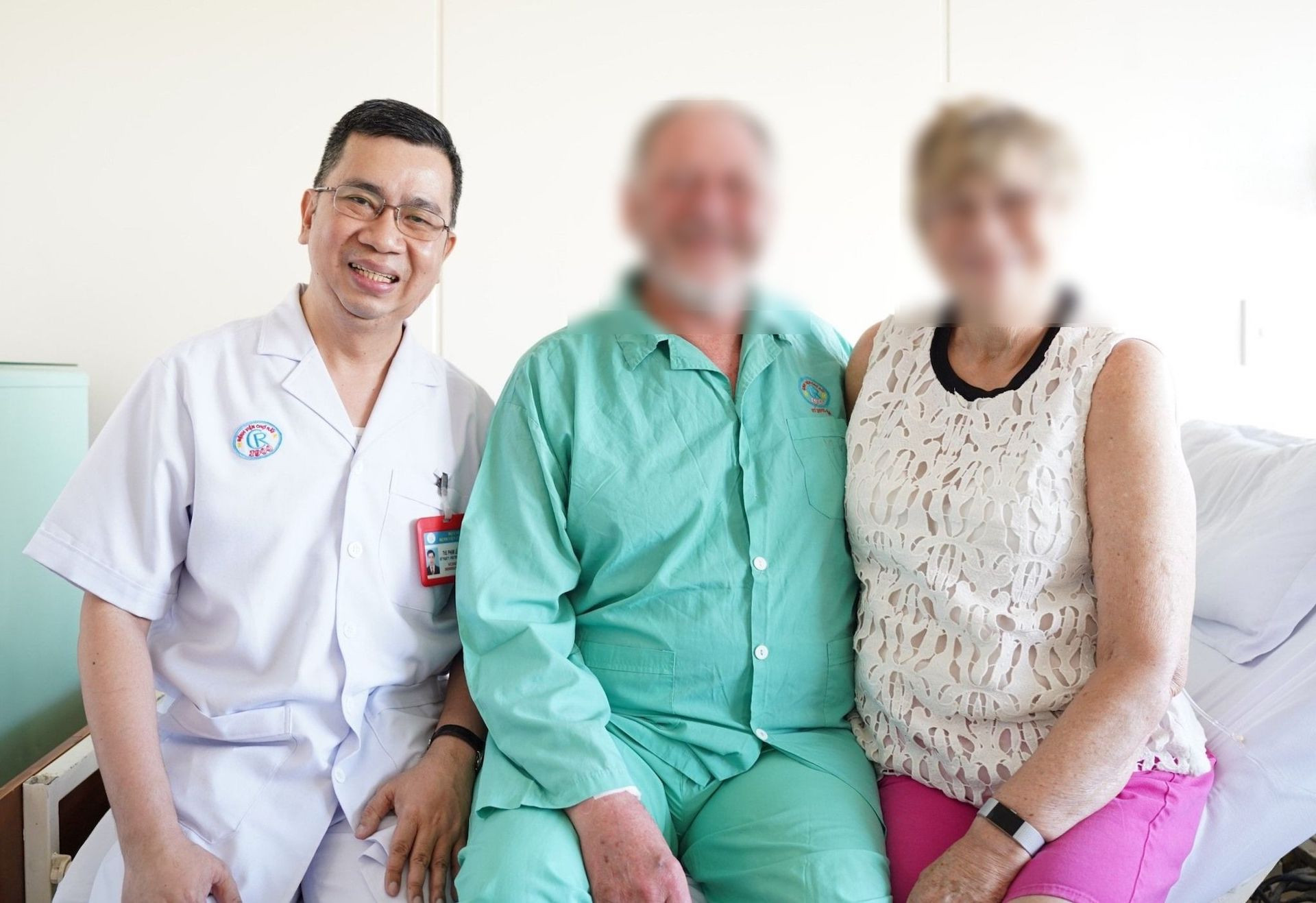
Cho Ray Hospital on March 24 reported that it activated an emergency process to seek rare blood donors to save a patient.
A.P, 64, of British nationality, was hospitalized on March 17 with bleeding teeth, nosebleeds, dot-like bruising, and bleeding in both legs. The team of doctors believed that this was a case of Immune Thrombocytopenic Purpura (ITP) on underlying conditions of hypertension. They found a risk of brain hemorrhage due to a very low platelet count, just 1.0 G/L, and decided he urgently needed platelet transfusion.
However, P has the rare blood type O RH-, that only 0.1 percent of Vietnamese population have.
Meanwhile, the stockpile of the Blood Transfusion Center of Cho Ray Hospital at that moment had just run out of O RH- platelet products.
The Blood Transfusion Center immediately activated the emergency process, quickly contacting the HCM City Rare Blood Type Club, which belongs to HCM City Humanitarian Blood Donation Center and the Southern Rare Blood Types Club.
Six members of the two clubs immediately put off their work and rushed to Cho Ray to rescue the patient. One of them came from the suburban district of Cu Chi, while another was from Dong Nai province.
After the screening, three of them were found having suitable blood to donate platelets, including Le Thi Mit and Nguyen Thi Thuy (Ms) and Nguyen Van Bao (Mr), all of HCM City.
After nearly 10 hours of activating the red alert procedure (from 8 am to 5.30 pm), three standard O RH- group platelet preparations were produced and safely given to the patient.
On March 23, the patient was discharged from hospital in stable condition. He thanked the donors and medical workers who saved his life.
Cho Ray Hospital has also thanked the volunteers of the blood clubs, who put the task of saving of patients as a top priority, and joined forces with medical workers to save the life of the patient.
Platelets are the smallest cell of the blood, responsible for clotting and stopping bleeding. Normal people have 150,000-300,000 platelets in each mm3 of blood. Platelets have an average lifespan of 3-5 days.
Donors need to be examined and have blood tests before they donate platelets. The platelet donation process is very strict. The donation time lasts 60-80 minutes.
Doctors say that although people with O Rh(-) blood type can donate to anyone, the donors can only receive the same type of blood.
Vo Thu